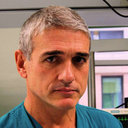Accidental mushroom poisoning mimicking stroke. A case report and literature review.
الكلمات الدالة
نبذة مختصرة
We describe here a paradigmatic case of mushroom poisoning mimicking a stroke. A 64-year old male was referred to the emergency department (ED) for a car accident. He was found diaphoretic, hypotensive, bradycardic, and slightly confused at presentation. No signs of trauma were observed on physical examination. The patient had weakness of the right limbs and bilateral severe myosis. The lab tests were normal, except for leukocytosis, mild hyperglycemia, mild hyperazotemia and moderate hypokalemia. The clinical picture, with the exception of miosis, was thereby suggestive for a stroke, which was also considered the cause of the car accident. The patients' wife, who was brought later to the ED, reported that the husband had suffered a stroke 4 years earlier, with residual right hemiparesis. She also referred that the patient showed signs of diaphoresis and confusion, and the car was intentionally driven into the ditch. Among other details, she referred that the husband ate mushrooms that she had personally collected 2 hours before taking the drive. Two mg of atropine, intravenous rehydration and potassium were hence administered in the suspicion of a cholinergic toxydrome, and complete clinical remission was rapidly obtained. Among the mixture of mushrooms eaten by the patient, a mycologist identified Armillaria Mellea (an edible mushroom) and notably Inocybe Fastigiata, a toxic muscarine-containing mushroom, easily confounded with Armillaria. After observation and oral rehydration, the patient was discharged.



